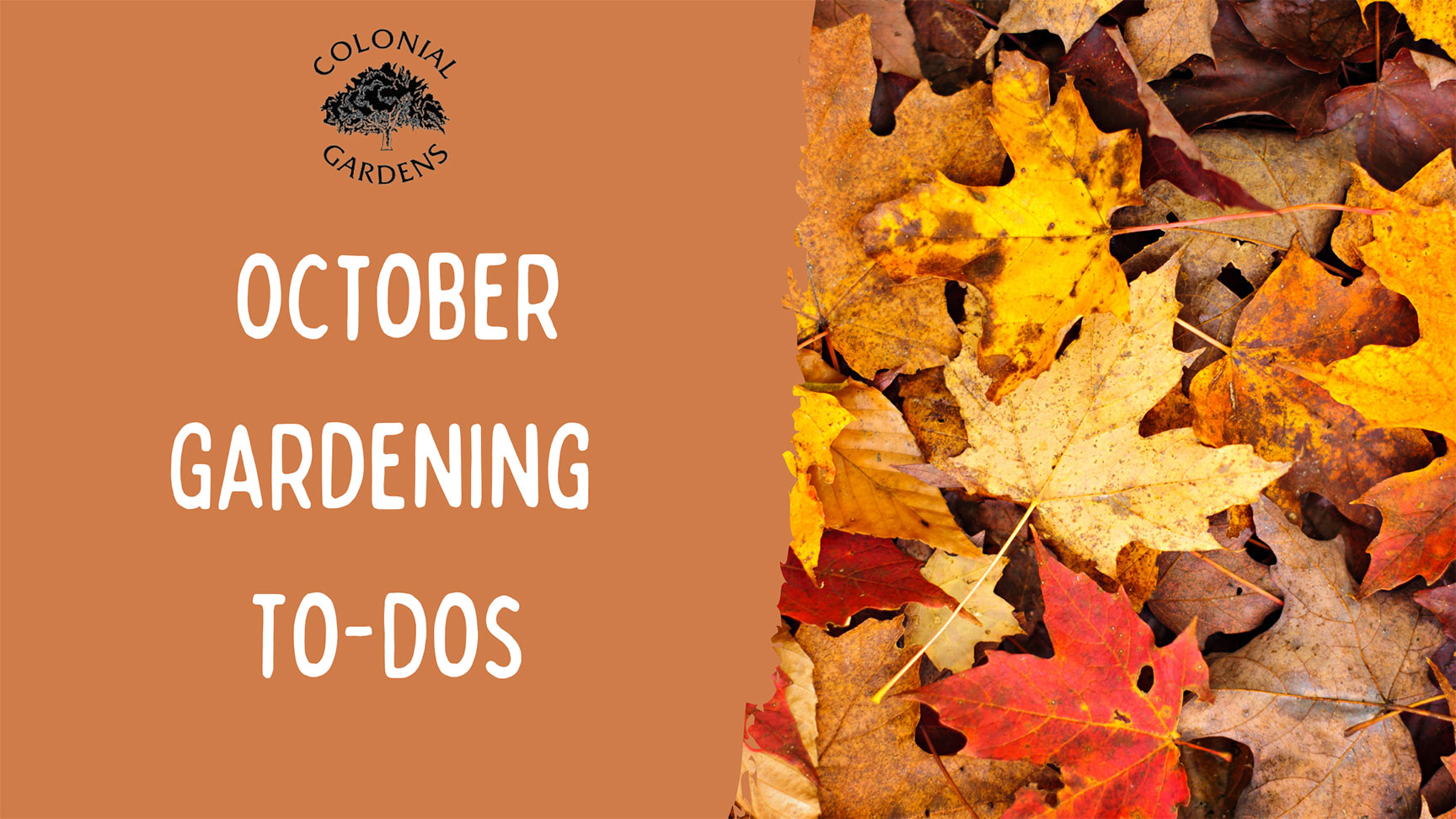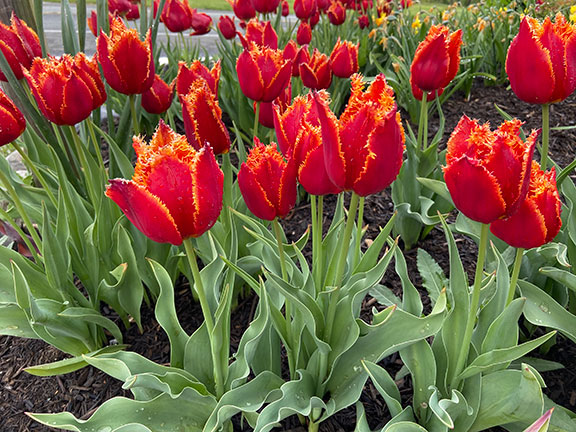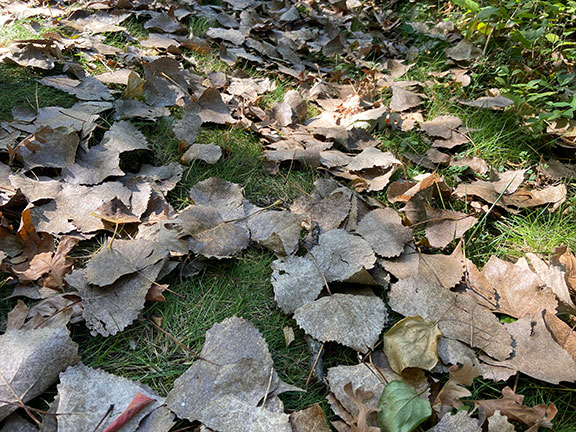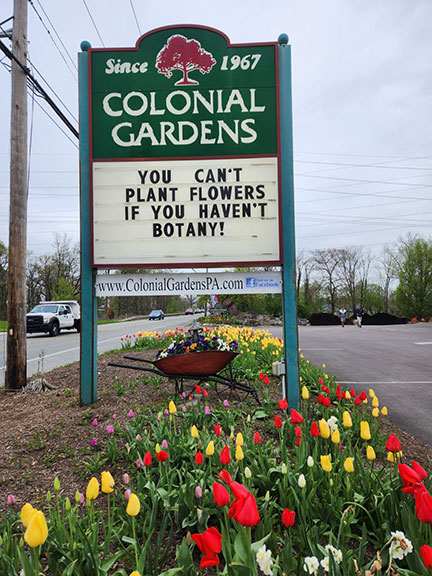
We’re headed towards the end of the gardening season, but there is still plenty to do before you tuck in your beds for the winter. Here are 8 gardening to-dos for October:
Remove spent summer annuals. Replace with fall favorites.
For the most part, you can just cut back these plants to their roots. Some annuals like Black and Bloom salvia, calla lilies, and cannas may come back next year if planted in a protected area with a mild winter. If you don’t want these plants to come back, dig up their roots as well.
There are still plenty of options for containers and bedding plants in the fall. Pansies are extremely hardy when it comes to flowers. Last year, they made it all the way through the winter! If you want less of a commitment, pick up mums, cabbages and kales, or pre-made planters from your local garden center.

Plant perennials, trees, and shrubs.
While you can plant anytime the ground is workable, planting in the fall is an excellent time to add perennials, trees, and shrubs to your yard. October in Pennsylvania tends to have beautiful weather, which is easier on plants during the transplant process. After planting, apply a layer of mulch around the base of the plant. That will help them maintain moisture and keep a more consistent temperature.
If you purchase your trees or shrubs from Colonial Gardens, they come with a 1-year warranty. Don’t let the fear of winter prevent you from planting!
Plant spring bulbs.
Wait until the weather becomes consistently cool before adding spring bulbs to your garden. Find a sunny spot with well-draining soil. Check out our blog about planting bulbs for spring for more details.
Leave the leaves unless…
Leaves are essential habitat for local wildlife to safely overwinter here in southeastern PA. Leaving the leaves is a great way to support local pollinators, predatory insects, turtles, and small mammals.
If you have children or pets that use your lawn, you can rake your leaves into your beds. Over the winter, the leaves will create shelter for wildlife. Then the leaves will decay and turn into compost over time, adding nutrients to your beds.
There are scenarios where you should remove your leaves! If you struggled with disease or pest insects in your garden this year, consider cutting back those stems and removing the leaf litter from beneath them. That can help reduce the recurrence of those issues next year.

Keep stalks standing.
It’s tempting to remove spent flower stalks this time of year to give your garden a clean look, but there’s value to keeping them standing. Native bees overwinter in the hollow stems of plants. Keeping them standing gives those bees a space to protect themselves in the cold. Some plants, like echinacea, have attractive seed heads that add winter interest. If you do cut them back, try to leave at least 18” of stem standing.
Divide spring-blooming perennials.
If you have irises or hostas that have become overgrown or dead in the middle, it’s time to divide them. Check out this blog by the University of Minnesota for information about how to divide all your perennials.
Observe.
The fall is often a weak point for beginner gardeners. You go to the garden center and pick up beautiful blooming things in the spring and don’t think about what everything will look like in the fall. A good garden has year-round interest. If your garden is looking tired, with nothing coming into blooming, consider adding some fall plants. This could be late-blooming perennials like sedum, asters, or helenium. It could also mean fall annuals like mums and celosia to brighten up your beds.
Take pictures of your garden at this point for your reference in the future. You’ll see the holes that need to be filled or the spaces that need color or structure for balance.
Start winterizing your containers, statues, and birdbaths.
We don’t tend to get full freezes here until November, but now is a great time to start moving your hardware into protected places. If left out in the elements, water will collect in and under pots. It will infiltrate tiny cracks in your pottery and statuary, or the bowls of birdbaths and rain gauges. When the temperatures dip, the freezing water will expand, pushing on cracks and openings, causing damage. To prolong the life of your ceramics and statuary, bring them into protected places where they won’t get wet. Turn pottery and birdbaths over so that they don’t collect water.
There’s always something to do in the garden, even as we put the beds to rest.

Colonial Gardens is an independent garden center located in Phoenixville in Chester County, Pennsylvania since 1967. We carry one of the widest selection of annuals, perennials, trees and shrubs, and food gardening crops in Southeastern Pennsylvania. We offer professional landscaping services and a full-service florist. Visit our greenhouse for unique houseplants and our gift shop for gifts and garden accessories. In the fall and winter, join us for our family-friendly seasonal events and Christmas shop.
